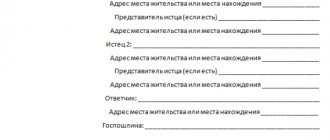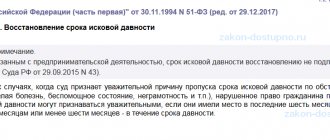Termination of gift agreements, entailing the cancellation of the deed of gift, is a fairly common occurrence in legal practice. It is worth noting that the very concept of “termination of a gift” in 2021 is still absent in civil legislation, and the use of this terminology implies either the recognition of the gift as invalid or the cancellation of the gift agreement, which we recently examined in detail in articles on the “Legal Aid” website.
Let us recall that transactions for the gratuitous transfer of property benefits can be terminated not only before the transfer of the object of donation to the donee, but also after its transfer, if such cancellation is provided for by the legislator. At the same time, termination of the gift agreement is carried out on the initiative of not only the donee and the donor, but also any person interested in this.
What is a gift deed in 2021
Like any legal transaction, a gift agreement is an agreement between two or more parties. However, the main difference from most property alienation transactions is always its gratuitous nature.
Thus, a gift involves only a gratuitous transfer, or a promise to carry out such a transfer within a specified period, of property benefits, as well as the rights and obligations associated with the gift, from one party, called the donor, to the other, the donee.
The object of the gift agreement may be:
- Real estate;
- movable property permitted by the legislator (for example, household appliances);
- securities (for example, shares);
- cash;
- intellectual property;
- property rights, etc.
A more voluminous and precise definition of a gift agreement in 2021 can be found by reading paragraph 1 of Article 572 of the Civil Code of the Russian Federation.
Important features of this type of transaction are 2 factors:
- actual moment of conclusion of the contract;
- transfer from the donor to the donee of ownership of the object of the transaction.
If both of the above factors coincide, the transaction is considered real, and if not, it is considered consensual (contract of promise of gift).
Remember that a generally accepted mandatory feature of such agreements is their gratuitous nature! Otherwise, the transaction may be considered sham and/or void.
Expert opinion
Oleg Ustinov
Practicing lawyer, author of the website “Legal Ambulance”, one of the co-founders of the “Our Future” foundation.
It is worth noting that gratuitousness itself cannot influence the donor’s motivation to increase the recipient’s property by reducing his own property. Thus, the motives in each specific case may depend on a variety of circumstances and vary depending on the specific situation.
At the same time, the reasons that prompted the initiator of the donation to donate the property should not affect the validity of the deed of gift itself. Simply put, the contents of the gift agreement must be free of any counter-obligations or grants. If such conditions and clauses are found, then, according to the information specified in paragraph 2 of paragraph 1 of Article 572 of Article 572 of the Civil Code, the agreement will be declared void.
An example from the practice of lawyers of the website “Legal Aid”
Citizen K. decided to give a gift to citizen O., who was the daughter of his cousin, after she helped him out in a difficult life situation. Therefore, as soon as O. expressed her desire to purchase his summer cottage plot from K., the latter decided to thank O. in this way by transferring 8 acres of land at the price of 4 acres.
Thinking over the deal, K. thought that he was making a rather generous gift to his savior by giving her such a large discount. At the same time, from the point of view of the legislator, such a transaction could not be recognized as a donation, because the content of the agreement contained a counter obligation to pay for the property received by the receiving party.
Thus, based on the situation, we can conclude that the very desire to give someone a gift is not a gift if the giver ultimately wants to receive any benefits from the recipient for the gift provided (money, services, rights, etc.).
However, an increase in the property of the donee and a decrease in it from the donor because of this are separate signs of a deed of gift .
When making a gratuitous donation, it is extremely important that the intention to give away property benefits is formed based on the desire of the donor, that is, without coercion or any influence from other citizens. Otherwise, according to Article 179 of the Civil Code of the Russian Federation, such an agreement will most likely be challenged and declared invalid.
It is worth noting that, in addition to the desire to transfer a gift, the donor is obliged to obtain from the receiving party consent to accept not only the property being transferred, but also the obligations/rights inherent in this gift.
Important clarifications
Right to decision
It is worth understanding that refusal can only be carried out if a consensual act has been drawn up. If this is carried out at the stage of negotiations before the contract, then these actions will be regulated by the general norms of the Civil Code of the Russian Federation, and then the deal will be considered not terminated, but not concluded.
After concluding an agreement, the donee becomes the full owner of the gift and therefore he can dispose of it as he wishes: donate, exchange, sell or destroy
Sample design
A sample form for refusal of donation can be expressed in several forms:
| Oral | In this case, a verbal refusal will be sufficient - nothing more is required. |
| Written | If the need for refusal arose after the conclusion of the contract, but before its conclusion, then in order to carry out the operation it is necessary to draw up a written document in any form, which will reflect the relevant fact indicating the reasons. Moreover, it is worth considering that if the agreement was certified by a notary, then the refusal will need to be subjected to such an operation. |
| Judicial statement | This form is suitable for cases where the cancellation and subsequent refusal of the donation is carried out after the conclusion of the contract. Then the interested party needs to fill out an application form indicating the reasons and all this is supported by mandatory documentation, which motivates the court to take further actions with verification and making a decision. |
The last option is used in most situations by the donor in the event of damage to the health or budget of the other party to the transaction.
What form of gift agreement is appropriate in 2021
So, the form of deed of gift in 2021 directly depends on the following factors:
- transaction value, that is, the actual cost of the donated object acting as a gift;
- subjective composition of the parties to the donation;
- type of gift.
We remind you that the gift agreement today can still be concluded both in written and oral form.
In this case, most often, an oral agreement is used in transactions, the object of which is ordinary gifts of small value and property that does not require mandatory state registration, which, for example, includes real estate or vehicles.
In this case, the donation can be made both through the direct transfer of a gift from the donor to the recipient, and through a symbolic transfer (for example, transfer of documents for donated household appliances). Thus, the donation of movable property under a real contract can be made orally, if for this type of property the legislator has not established a mandatory procedure for registering the ownership rights of the new owner.
ARTICLE RECOMMENDED FOR YOU:
Tax on gift of real estate to non-relatives
Exceptions may be cases when a legal entity acts as the giving party in a gratuitous donation transaction, and the total market value of the gift exceeds the threshold established by the legislator of 3,000 Russian rubles (according to the information provided in paragraph 2 of Article 574 of the Civil Code of the Russian Federation) .
Also, it is worth noting that the majority of practicing lawyers (including specialists from the Legal Aid website) consider oral deeds of gift to be problematic. This is confirmed by statistics according to which most of the claims related to the termination of gift agreements were concluded orally by the parties to the transaction.
Lawyer's Note
Based on the information specified in paragraph 3 of Article 574, as well as in Article 131 of the Civil Code of the Russian Federation, all gift agreements (both real and consensual) whose object is real estate must be concluded exclusively in writing. The reason for this is the fact that this type of property requires mandatory re-registration of ownership. In addition, according to paragraph 2 of Article 574 of the Civil Code, all gift transactions that contain a promise of donation must be formalized in writing.
If, by deed of gift, the donor transfers free of charge to the donee a transfer or claim of a debt (from the donor to the donee), then this transaction must be completed in accordance with the form indicated by paragraph 1 of Article 389 of the Civil Code of the Russian Federation for the assignment of a claim, or by paragraph 2 of Article 391 of the Civil Code RF for the transfer of debt obligations.
At the same time, a real gift agreement for debt forgiveness, the purpose of which is to free the donee from debt obligations to the donor, can be concluded in a free form.
Prohibitions and restrictions
Prohibitions in the field of gifting are considered a recent innovation, as a result of which many are simply not aware of them. Such issues are regulated by Article 575 of the Civil Code of the Russian Federation. They apply to almost all transactions of this nature. Exceptions are situations where the subject is an item whose cost does not exceed 5 minimum wages.
In particular, the following prohibitions can be distinguished:
- representatives of minors do not have the right to act in transactions on behalf of the ward;
- It is not permitted to make donations in favor of employees of medical, educational or other similar institutions from clients and their relatives due to moral and ethical considerations;
- gifts to employees of municipal or government services are prohibited to exclude the possibility of bribes;
- Commercial organizations also cannot enter into transactions of this type.
In addition, the donation process is regulated by certain restrictions, which are also reflected in specific legislative acts:
- a legal entity can donate property only with the consent of the owner;
- if the property is an element of common joint ownership, then the consent of all owners is required to transfer rights to it;
- if the object of the gift is the release of a third party from obligations, then the conditions of Article 895 must be met;
- If one of the parties to the transaction nominated a representative, then a corresponding power of attorney is required.
Such restrictions and prohibitions are aimed at protecting the interests of not only the citizen, but also the state, since such moments make it possible to avoid fraudulent actions on the part of interested parties.
Grounds and reasons for terminating a gift agreement in 2021
Since the gift agreement represents a special category of agreements, in order to terminate the transactions the plaintiff must have good reasons, which are provided for by the current Russian legislation. Thus, in 2021, both general and special grounds for termination of the contract can be applied to legal relations under deed of gift.
The grounds of the first type today include recognition of the transaction as invalid, while special grounds include the donor’s refusal to fulfill the agreement and the recipient’s refusal to accept the object of the transaction under the conditions determined by the legislator for such situations.
It is worth noting that the grounds for terminating a real deed of gift are formed only after the completion of a gift agreement , and for terminating a consensual agreement or a promise of a gift agreement, it is enough to record a violation of the conditions and procedures during the transaction.
At the same time, the grounds for recognizing the gift agreement as invalid must actually precede the conclusion of the agreement or appear upon signing the deed. Simply put, in this case there must be direct violations of the conditions and procedure for making a donation established by the legislator.
General grounds for invalidating a gift
In our last article, we mentioned that, despite its ambiguity, a gift agreement refers to bilateral transactions. Therefore, in order to recognize a deed of gift as invalid, the general grounds established in Articles 166-178 of the Civil Code of the Russian Federation can be applied. For example, Article 166 of the Civil Code of the Russian Federation defines 2 types of invalid transactions:
- voidable transactions;
- worthless transactions.
Agreements that are invalid due to violation by the parties of established legal norms are initially void and can be canceled without a court decision, in contrast to voidable transactions, which can be terminated only after the relevant court decision is made.
Articles 168-179 of the Civil Code establish a list of general grounds, the presence of which leads to the invalidity of a transaction. We invite you to consider the most important of them, as well as familiarize yourself with the grounds that relate directly to gift agreements:
- the transaction is imaginary and concluded for show;
- the agreement was concluded to cover up another agreement (the so-called sham gift agreement);
In the 2 listed cases, the parties to the transaction do not have the goal of implementing legal relations that correspond to the gift agreement.
An example of a sham transaction is a situation where a legal entity or individual makes a donation, wanting to avoid confiscation of property by creditors. Thus, the donor enters into a deed of gift, initially intending to “circumvent” the rules established by the legislator and has no intention of transferring the property to the donee.
In Article 170 of the Civil Code one can find the definition of the above-mentioned transaction as void. The same will be considered as a gift agreement, with which the parties cover the purchase and sale.
- the deed of gift contains a condition that the object of the donation will be transferred to the donee after the death of the donor (3 paragraph 572 of the article);
Using a gift agreement to transfer property or rights after death is unacceptable! For these purposes, the law provides for a will.
- the gift agreement was concluded with errors or violations of form, subject or content.
Everything is clear here. Let us only note that an example of a violation of the form of a deed of gift may be the choice by the parties of an oral form of a gift agreement for objects, the ownership of which must be officially registered without fail. A void contract, for example, will be an agreement in the content of which there will be no designation of a gift (according to paragraph 2 of Article 572 of the Civil Code).
Also, it is worth considering categories of citizens who cannot, according to the provisions of Articles 575 and 576 of the Civil Code of the Russian Federation, act as parties to the donation:
- for the receiving party (donee) - citizens who are prohibited by law from accepting gratuitous gifts in connection with the performance of their official obligations or due to other factors related to their professional activities (employees of social services, educational, educational, medical institutions, as well as government employees and etc.);
- for the party transferring the gift (donor) - to citizens who are limited in making a gift and to persons who are prohibited from making gifts to others (for example, legal entities in transactions in which the gift is property belonging to them by right of economic or operational management, if these persons have not received the consent of the real owner of this property, etc.);
- legal entities engaged in entrepreneurial and commercial activities in relations with each other;
ARTICLE RECOMMENDED FOR YOU:
Pretentious gift agreement - legal advice
An actual violation of the deed of gift may be the presence in the content of the gift agreement of a consideration or the presence of an indication in it that the promise of a gift is conditional on the mandatory fulfillment of some obligation on the part of the donee.
- the transaction of gratuitous donation was made by a person limited in legal capacity or completely incompetent (Article 171 of the Civil Code of the Russian Federation, as well as Article 176 of the Civil Code of the Russian Federation) or by a person who, at the time of the transaction, was in a state that did not allow him to understand the situation and/or direct his own actions ;
- the deed of gift was concluded through a mistake by one of the parties (Article 178 of the Civil Code of the Russian Federation) or under the influence of threats, deception and other negative circumstances (according to information from Article 179 of the Civil Code of the Russian Federation).
Termination of a deed of gift at the initiative of the donor
In 2021, termination of a gift agreement at the initiative of the donor becomes possible exclusively on special grounds, implying the complete cancellation by the donating party of the executed deed of gift or the donor’s refusal to fulfill the obligations that he was supposed to fulfill based on the contract of promise of gift.
Thus, unilateral cancellation of a donation, in accordance with the provisions specified in Article 578 of the Civil Code of the Russian Federation, can be carried out in the following 3 cases:
- if the donee dies before the party who gave him the gift and this clause was agreed upon by the parties and is present in the content of the contract;
- if the donee does not properly care for the property donated to him, as a result of which it may be damaged (lose its properties) or completely destroyed (in this case, the donated property must have great intangible value for the donor, of which the donee must be aware);
- if the donee has made an attempt on the health or life of the donor himself or his close relatives.
The list of grounds established for refusal to fulfill a promise of gift agreement is contained in Article 577 of the Civil Code of the Russian Federation. Let's look at them:
- as a result of the transaction, the donor’s health, family or financial situation has significantly deteriorated, which will definitely reduce the quality of his standard of living;
In this case, it is very important that any of the changes described above occur as soon as possible after the conclusion of the deed of gift.
- If the donee has committed any illegal actions in relation to the donor himself, a list of which can be found in paragraph 1 of Article 578 of the Civil Code of the Russian Federation.
It is worth noting that, since the donor’s fault under these circumstances is excluded, the legislator completely exempts this person from compensation for damage to the donee (Clause 3, Article 577 of the Civil Code of the Russian Federation). At the same time, termination of a gift agreement if the donor refuses to fulfill his obligations is regulated on these grounds by Articles 451-453 of the Civil Code of the Russian Federation.
In addition, the legislation in force in 2021 provides for another basis, the presence of which allows the donor to refuse obligations regarding the transfer of a gift under a deed of gift - the destruction of the object of the transaction itself, a ban on its use at the legislative level, or the withdrawal of the gift from civil circulation.
Termination of a gift agreement at the initiative of the donee
Unilateral termination of a deed of gift at the request of the donee today becomes possible in the only case - if he exercises his right to refuse to accept the gift offered to him (Article 573 of the Civil Code). However, this person can exercise this right only if the gift agreement contains the donor’s promise to transfer the specified gift within a specified period. Simply put, the recipient can refuse the gift before accepting it.
In paragraph 2 of Article 573 of the Civil Code of the Russian Federation, a rule is established for making such a refusal at the initiative of the donee. Its essence is as follows:
- If the object of the gift is real estate, transactions with which require mandatory re-registration of ownership, refusal to accept such property also requires state registration.
- If the agreement was concluded between the parties in writing, the refusal must also be made in writing.
Crib
- A deed of gift can be canceled only on the grounds specified in Art. 578 Civil Code of the Russian Federation.
- If the donation was in the form of a donation, then it can be canceled in the cases provided for in Art. 582 of the Civil Code of the Russian Federation.
- For some reasons, the legislation does not provide for the need to go to court to revoke a donation. For example, when the donee made an attempt on the life of the donor.
- Cancellation of a gift in such cases occurs by notifying the donee of the donor’s intention to return the gift on the appropriate grounds.
- As practice shows, to cancel a gift you almost always have to go to court.
- The right to cancel a gift belongs to the donor, third parties (bank, creditors, prosecutorial authorities, guardianship and trusteeship authorities) and the heirs of the donor (if he died due to the fault of the donee).
- Before going to court, it is necessary to prepare evidence confirming the existence of grounds for canceling the contract.
- If the court satisfies the plaintiff’s demands, the donee must return the item received as a gift or compensate for its cost.
Do you decide to cancel the deed of gift due to improper handling of the gifted item by the recipient of the gift? Will you try to cancel the deed of gift unilaterally or immediately contact the judicial authorities?
The procedure for terminating a gift agreement in 2021
In addition to the methods described above, today citizens can terminate a gift agreement voluntarily if the parties are unanimous in their decision to terminate the gift deed. This procedure will require the presence of a notary and his certification of the termination of the transaction. But unilateral termination of the deed of gift in 2021 is possible only after receiving the appropriate court decision.
As we mentioned above, the grounds for termination of such transactions are defined at the legislative level. Thus, general rules are contained in Article 29 of the Civil Code of the Russian Federation, and special rules are regulated by Articles 577 and 578 of the Civil Code of the Russian Federation.
If there are several grounds for terminating the gift agreement, it is recommended to apply all the reasons, which will allow you to more convincingly and comprehensively describe the current situation and increase the chances of obtaining the solution you need.
Voluntary procedure for termination of deed of gift
Voluntary termination of a deed of gift is possible upon certification of the cancellation transaction by a notary . Moreover, if the object of the gratuitous donation was real estate, which, according to the current legislation, is subject to state registration - after the agreement on termination of the gift agreement is notarized, the parties need to collect all the necessary documents (be sure to attach to them a receipt for payment of the state donation fee !), and then arrange a reverse re-registration of property rights with the state registration authority.
It is worth noting that in the event of a donor’s refusal to fulfill the obligation to transfer a gift or the donee’s refusal to accept a gift under a promise of gift agreement, better known as a consensual gift agreement, the agreement will be considered terminated only after the will of one of the parties, which must be drawn up in writing .
In addition, the legislator today provides for the cancellation of a gift based on a notary-certified application from the donor to the recipient. In 2021, this becomes possible in the following cases:
- intentional harm to health or attempted deprivation of life (according to paragraph 1 of paragraph 1 of article 578 of the Civil Code);
- manifestation of malicious ingratitude by the recipient towards the donor or his close relatives;
ARTICLE RECOMMENDED FOR YOU:
Is it possible to cancel a deed of gift for an apartment?
It is worth noting that the grounds stated by the plaintiff must be confirmed by a court decision in a civil case or a similar decision in criminal proceedings.
- the donor outlives the donee, and the content of the gift agreement contains a clause on the termination of the deed of gift upon the occurrence of such circumstances (4 paragraph 578 of Article of the Civil Code of the Russian Federation).
At the same time, the termination of an initially void gift agreement, according to the legislation in force in Russia in 2021, does not require the above-mentioned court decision, although, based on the practice of lawyers of the Legal Aid website, we can conclude that the majority of such terminations of transactions still occur in court order, since 95% of recipients do not want to voluntarily return the gifts they received on a voluntary basis.
Judicial procedure for terminating a gift agreement
If one of the parties refuses to terminate the gift agreement voluntarily, you can try to challenge the gift deed in court by filing an appropriate lawsuit. However, for this, the plaintiff must “have in hand” compelling reasons that he will need to prove in court.
We remind our readers that only one of the parties to the transaction can terminate the deed of gift for special reasons. At the same time, in court, the former owner of the property (donor) may demand the cancellation of the deed of gift, according to the grounds specified in paragraph 2 of paragraph 578 of the article, the essence of which is the inappropriate attitude of the donee to the property received as a gift, which may be damaged or irretrievably lost as a result .
The judicial procedure for terminating such transactions is explained by the need to establish the facts and circumstances stated in the claim, which act as legal grounds for terminating the gift agreement, since the versions of the parties, as a rule, differ and the court needs to resolve the dispute based on indisputable facts.
However, there are 2 special cases when persons who did not participate in the transaction can file a similar claim with the court:
- If the donor is a legal entity or a person engaged in entrepreneurial activity who has completed a transaction in violation of the Federal Law “On Bankruptcy (Insolvency)”. That is, a person who donated property benefits within 6 months before he declared himself bankrupt, which are related to his commercial activities (3 paragraph 578 of Article of the Civil Code of the Russian Federation).
In such situations, the right to file a claim for termination of the deed of gift in court can be exercised by persons acting as creditors of the donor or representatives of government agencies whose purpose is to exercise control over commercial activities.
- If the donor was deprived of life by the donee (2 paragraph 1 of clause 578 of article 578 of the Civil Code).
Also, it is worth noting that both voidable deeds of gift and initially void ones are subject to termination in court. Thus, not only the parties to the contract, but also any interested citizens whose interests and rights were violated as a result of the conclusion of an unlawful transaction (in the cases described in paragraph 3 of paragraph 166 of the Civil Code of the Russian Federation) have the right to demand the application of appropriate consequences to void contracts.
Lawyer's Note
In addition, other persons can also make demands to terminate a voidable gift agreement, a full list of which can be found in paragraph 2 of Article 166 of the Civil Code of the Russian Federation. For example, according to paragraph 3 of Article 572 of the Civil Code of the Russian Federation, a deed of gift containing a condition for the transfer of the gift after the death of the donor is recognized as void, and the right to challenge it is given to the donor’s heirs by law, due to the fact that the property donated by him must become part of the so-called inherited mass , after which it should be distributed in parts established by the legislator among all heirs.
The right to challenge a gift transaction that was made by an incapacitated person, or a citizen who was subsequently recognized as such, has the legal representatives, as well as trustees and guardians. To do this, they are required to present to the court documents that confirm the grounds for termination of the deed of gift (for example, a certificate stating that the donor has a mental disorder), in accordance with Article 171, as well as the information set out in paragraph 2 of Article 177 of the Civil Code of the Russian Federation.
Also, a legally capable donor who, at the conclusion of the transaction, was in a state that prevented him from giving an account of his actions, or persons whose rights were violated by such a transaction (1 paragraph 177 of the Civil Code of the Russian Federation) can demand that the deed of gift be declared invalid in 2021.
Restoring the deadline
A party that has missed the statute of limitations may reinstate it if there are valid reasons provided by law. For example, the limitation period is suspended for the period when:
- Extraordinary and insurmountable circumstances were present;
- The plaintiff was in the Armed Forces under martial law;
- The authorities have established a moratorium on the presentation of certain demands, or the operation of the relevant law has been suspended (Article 202 of the Civil Code of the Russian Federation);
- For other valid reasons at the discretion of the court - in connection with the illness of the plaintiff, his helpless state and other circumstances that prevent the filing of a claim.
As a general rule, the limitation period is suspended if circumstances preventing the filing of a claim arose in the last six months before its expiration date.
In addition to citing circumstances that suspend the limitation period under a gift agreement, the plaintiff may try to prove that the defendant committed actions that interrupt this period. Based on Art. 203 of the Civil Code of the Russian Federation, the limitation period is interrupted by the defendant taking actions indicating recognition of the debt. After this, the period begins to count down again.
Legal consequences of termination of a gift agreement in 2021
The main consequence of the termination of a gift agreement, as before in 2021, is the return of property previously transferred free of charge to the donee back into the property of the donor. Thus, when a donation is canceled, based on the norms listed in paragraph 5 of Article 578 of the Civil Code of the Russian Federation, the recipient is obliged to return the gift to the donor or compensate for its damage in full if these property benefits were irretrievably lost.
Everything described above, almost word for word, echoes the general rules, which you can read in paragraph 1 of Article 1104 of the Civil Code. However, in legal practice there are cases when recipients, wanting to avoid returning the goods given to them, sell them or destroy them. In these cases, the legal consequences of unjust enrichment come into play, as recorded in paragraph 1, Article 60, Chapter 1105 of the Civil Code of the Russian Federation, as well as the requirements for compensation for damage to the donor, described in Chapter 59 of the Civil Code of the Russian Federation. We also recommend that you watch this 4-minute expert video on how to challenge a deed of gift:
When a deed of gift is declared invalid, the general provisions on the consequences of invalid transactions, regulated by the provisions of Article 167 of the Civil Code of the Russian Federation, apply to a transaction. At the same time, according to paragraph 2 of this article, the donee is obliged to return the gift to the donor or pay its value at the time of conclusion of the transaction, compensating for the damage associated with the loss of property.
FAQ
Q: Is it possible to cancel a deed of gift for real estate?
A: It is possible, if provided for in Art. 578 of the Civil Code of the Russian Federation grounds for its cancellation or on the grounds provided for challenging it. For example, if the transaction was imaginary or feigned. Either the donor was incapacitated or the consent of the other owners to enter into the agreement was not obtained.
Q: Is it possible to cancel a deed of gift for land?
A: It is possible if the donee made an attempt on the life of the donor, took his life, or deliberately inflicted serious injuries on him or members of his family. And also in the event of bankruptcy of the donor-entrepreneur or when the recipient died earlier (this condition must be enshrined in the gift agreement).
Does the deed of gift for an apartment have retroactive effect? Is it possible and how to return the gift?
This is possible with the voluntary consent of all participants. This usually happens without the participation of additional services. But still, in some cases it is necessary to involve a notary, since the application for refusal must be officially certified if the agreement has also passed this procedure. But sometimes the intervention of the judiciary is required to clarify the situation and determine the nuances of the process. For example, an important point concerns compensation in favor of the donor. Then, for the trial, you need to fully prepare the relevant documents, evidence and a statement of claim.
Refusal of the donee to accept the gift
Attention
Deed of gift: nuances Deed of gift is also called a gift agreement. Typically, this document is used when it is necessary to legitimize a very expensive and very valuable gift.
For example, a painting by a famous artist. If you do not fill out all the documents for it correctly, troubles may arise that will be associated with proving the gift belongs to a particular person.
A gift agreement helps resolve various misunderstandings between the parties and third parties. Today, the subject of a gift agreement can be not only valuable items, precious stones, etc., but also property, the right to manage a company, and much more. From a legal point of view, a gift agreement is concluded between two parties - the donor and the recipient.







